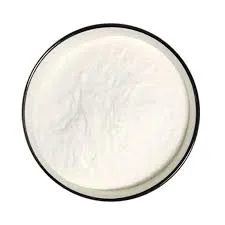
ডিসে. . 25, 2024 08:24 Back to list
Exploring Various HPMC Grades and Their Applications in Different Industries
The Different Grades of HPMC Understanding Their Properties and Applications
Hydroxypropyl Methylcellulose (HPMC) is a versatile cellulose ether derived from natural cellulose. Its unique properties make it an essential ingredient in various industries, including pharmaceuticals, food, cosmetics, and construction. HPMC is available in different grades, each tailored for specific applications due to their varying chemical properties, solubility, viscosity, and other attributes. Understanding these different grades is crucial for manufacturers and formulators to select the appropriate type for their needs.
What is HPMC?
HPMC is a non-ionic, water-soluble polymer widely utilized for its film-forming, thickening, and gelling properties. It is derived through the etherification of cellulose, where hydroxypropyl and methyl groups are introduced to improve solubility and stability. HPMC is generally recognized as safe (GRAS) by the FDA, making it a popular choice in food and pharmaceutical formulations.
Different Grades of HPMC
HPMC is classified into several grades based on viscosity, gelation temperature, and purity
. The key parameters that differentiate these grades include the degree of substitution (the number of hydroxypropyl and methyl groups), molecular weight, and viscosity.1. Low Viscosity Grades These grades are typically used in applications that require lower thickening properties. Commonly, they have a viscosity range of 3,000 to 10,000 mPa·s. They are suitable for use in liquid formulations, like emulsions and suspensions, where they can provide stability without overly thickening the mixture.
2. Medium Viscosity Grades These grades possess a viscosity range of about 10,000 to 50,000 mPa·s. They are ideal for products that require a balanced thickness and flow, often used in pharmaceutical tablets and as binders in formulations. Their ability to enhance the texture and stability of a product is highly valued in both cosmetic and food industries.
3. High Viscosity Grades With viscosities ranging from 50,000 mPa·s and higher, these grades are crucial when high viscosity is demanded. They are commonly used as thickening agents in high-performance applications, such as gels, adhesives, and self-leveling mortars in construction.
different grades of hpmc

4. Specialized Grades In addition to the standard classifications, there are also specialized grades of HPMC developed for specific applications. For instance, some grades are designed for quick solubility in cold water, ideal for instant products or in applications needing rapid dissolution. Others may include controlled release profiles for pharmaceutical applications, providing sustained drug delivery.
Applications of Different Grades of HPMC
The versatility of HPMC's grades allows for extensive applications across various industries
- Pharmaceuticals Depending on their viscosity and solubility, different grades of HPMC are used in tablet manufacturing, as binders, and as film-coating agents. They play a significant role in controlled drug release formulations.
- Food Industry HPMC is used as a thickener, emulsifier, and stabilizer in sauces, dressings, and ice creams. It enhances texture and shelf-life in food products.
- Cosmetics In personal care products, HPMC serves as a thickening agent and emulsifier in creams, lotions, and gel products, improving product consistency and stability.
- Construction HPMC grades utilized in construction improve the workability and adhesion of mortars and plasters. They also aid in controlling hydration rates and workability in building materials.
Conclusion
Understanding the various grades of HPMC and their unique properties is essential for formulators across industries. By selecting the appropriate grade, manufacturers can enhance their products' performance, stability, and consumer appeal. As industries continue to evolve, the demand for tailored HPMC solutions is likely to increase, further emphasizing the importance of this multifaceted polymer in today's market.
-
Versatile Hpmc Uses in Different Industries
NewsJun.19,2025
-
Redispersible Powder's Role in Enhancing Durability of Construction Products
NewsJun.19,2025
-
Hydroxyethyl Cellulose Applications Driving Green Industrial Processes
NewsJun.19,2025
-
Exploring Different Redispersible Polymer Powder
NewsJun.19,2025
-
Choosing the Right Mortar Bonding Agent
NewsJun.19,2025
-
Applications and Significance of China Hpmc in Modern Industries
NewsJun.19,2025







